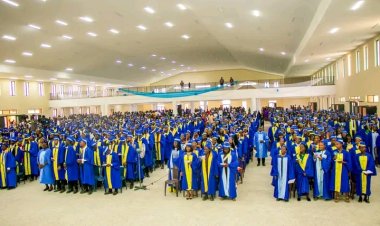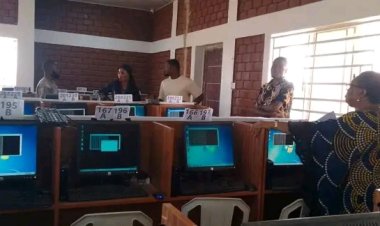Students at UNIMAID Appeal for Consistency and Relief Amidst Extended Academic Year
The pursuit of higher education is a journey marked by dedication, perseverance, and aspiration. However, myschoolnews monitored that for many students, this journey has taken an unexpected turn due to the challenges presented by academic schedules.

The plea of a student from the University of Maiduguri (UNIMAID) sheds light on the difficulties faced by students as they navigate through an extended academic calendar. This article delves into the concerns raised by the student, emphasizing the importance of consistency, consideration, and a balanced approach to academic planning.
The Cry for Consistency
In a heartfelt appeal, the student addresses the Vice-Chancellor of UNIMAID, Professor Aliyu Shugaba, expressing the collective sentiments of fellow students. The plea underscores the necessity for adhering to a specific academic calendar, irrespective of external pressures or speculations. The student asserts that predictability and adherence to a predefined schedule would provide a sense of stability and enable students to plan their lives more effectively.
The Weight of Extended Semesters
One of the most pressing concerns highlighted by the student's appeal is the impact of elongated academic semesters. Since students returned to classes on January 3rd, the session has stretched beyond the boundaries of a conventional academic year. This elongation has far-reaching implications, affecting not only the academic progress of the students but also their personal lives. The student mentions that some of their peers are self-sponsored, emphasizing how the prolonged academic year has placed additional financial burdens on them.
Geographical Challenges and Balance
The plea further reveals the diverse backgrounds of UNIMAID students. Not all students reside in Maiduguri, and the elongated academic year has proven to be particularly challenging for those who travel long distances to attend classes. The additional time spent away from home has resulted in a complex set of challenges, both emotional and logistical. The plea emphasizes the importance of a balanced approach to academic planning, taking into account the diverse circumstances of the student body.
Looking Ahead
The student's plea does not merely express concerns; it is also a plea for understanding and support. The appeal serves as a call for the administration to acknowledge the difficulties faced by students and consider implementing measures to mitigate these challenges. The student expresses a sincere desire to progress through the academic journey efficiently and optimally, without a prolonged extension of the academic year.
Conclusion
The heartfelt appeal of the UNIMAID student resonates with students across institutions who are navigating through similar challenges. It underscores the need for academic institutions to balance flexibility with consistency, and to consider the unique circumstances of their student populations. As higher education institutions continue to evolve, the well-being and academic success of students should remain at the forefront. It is a reminder that behind every plea is a story, a struggle, and a longing for a brighter and more balanced academic future.

 UmarFarouk123
UmarFarouk123 



